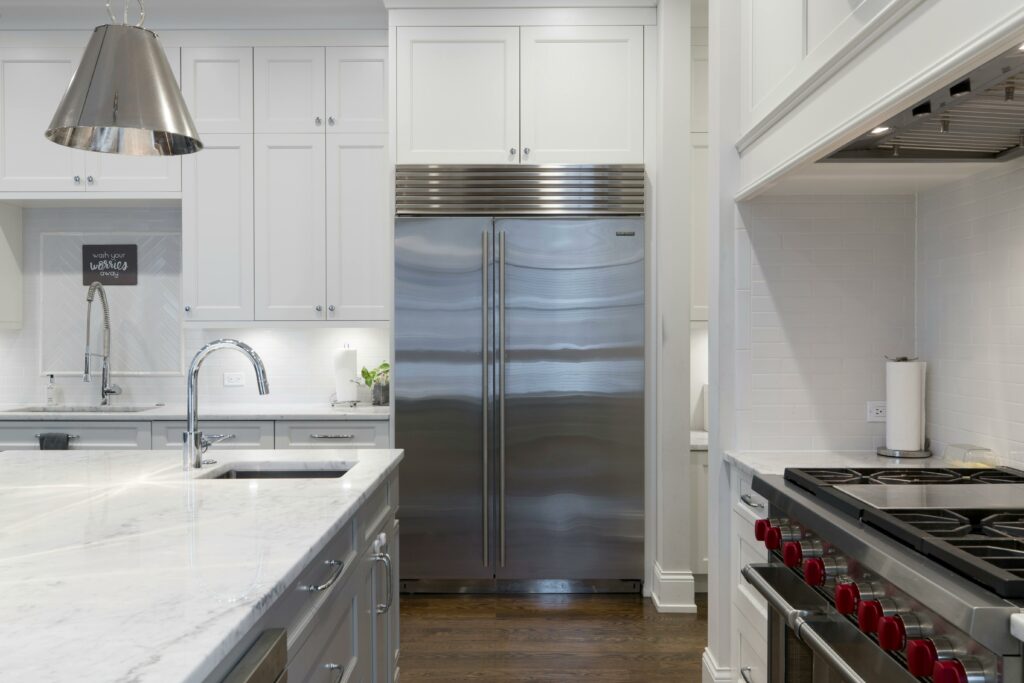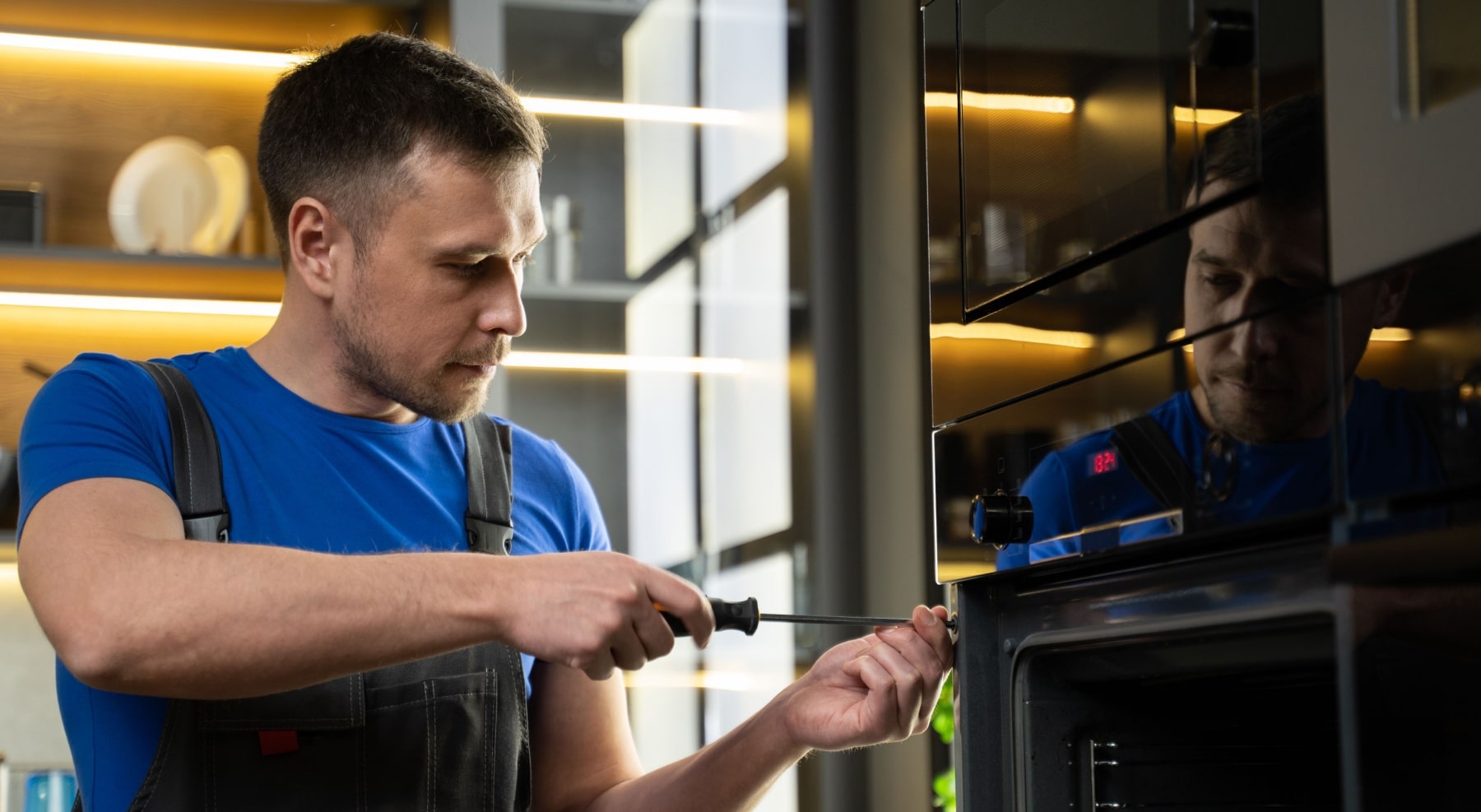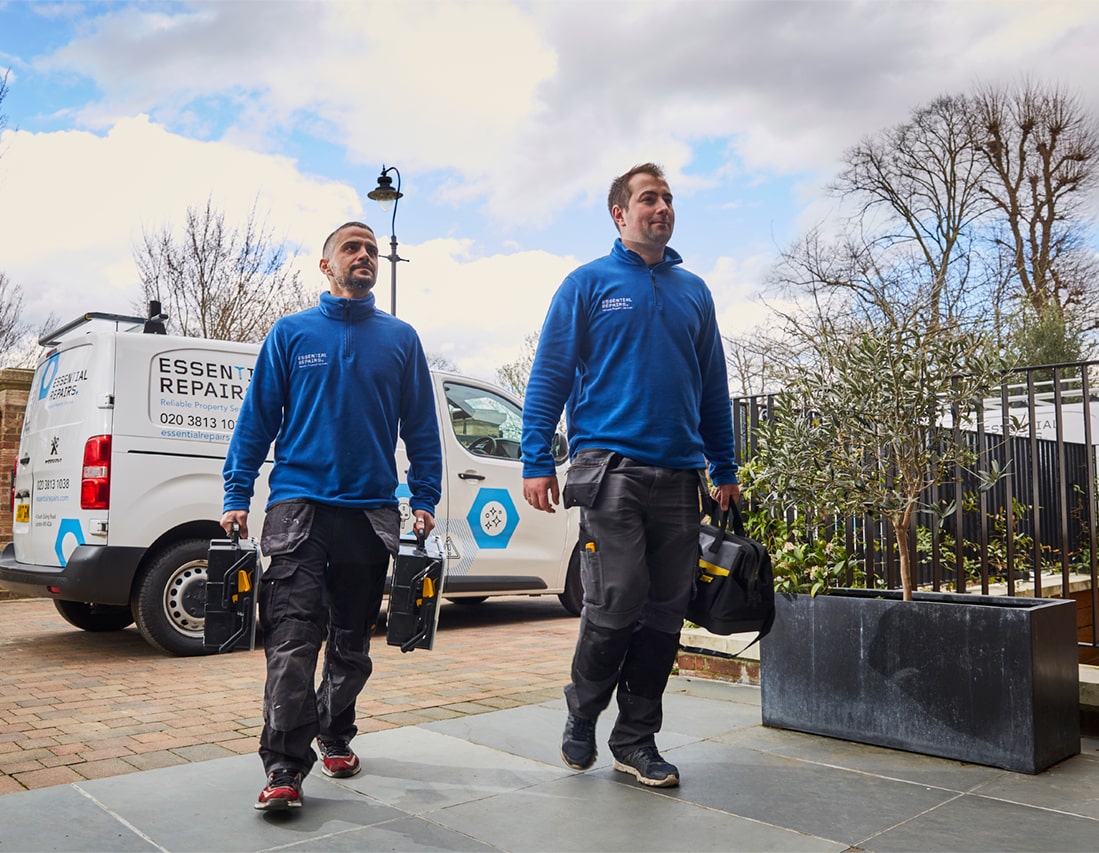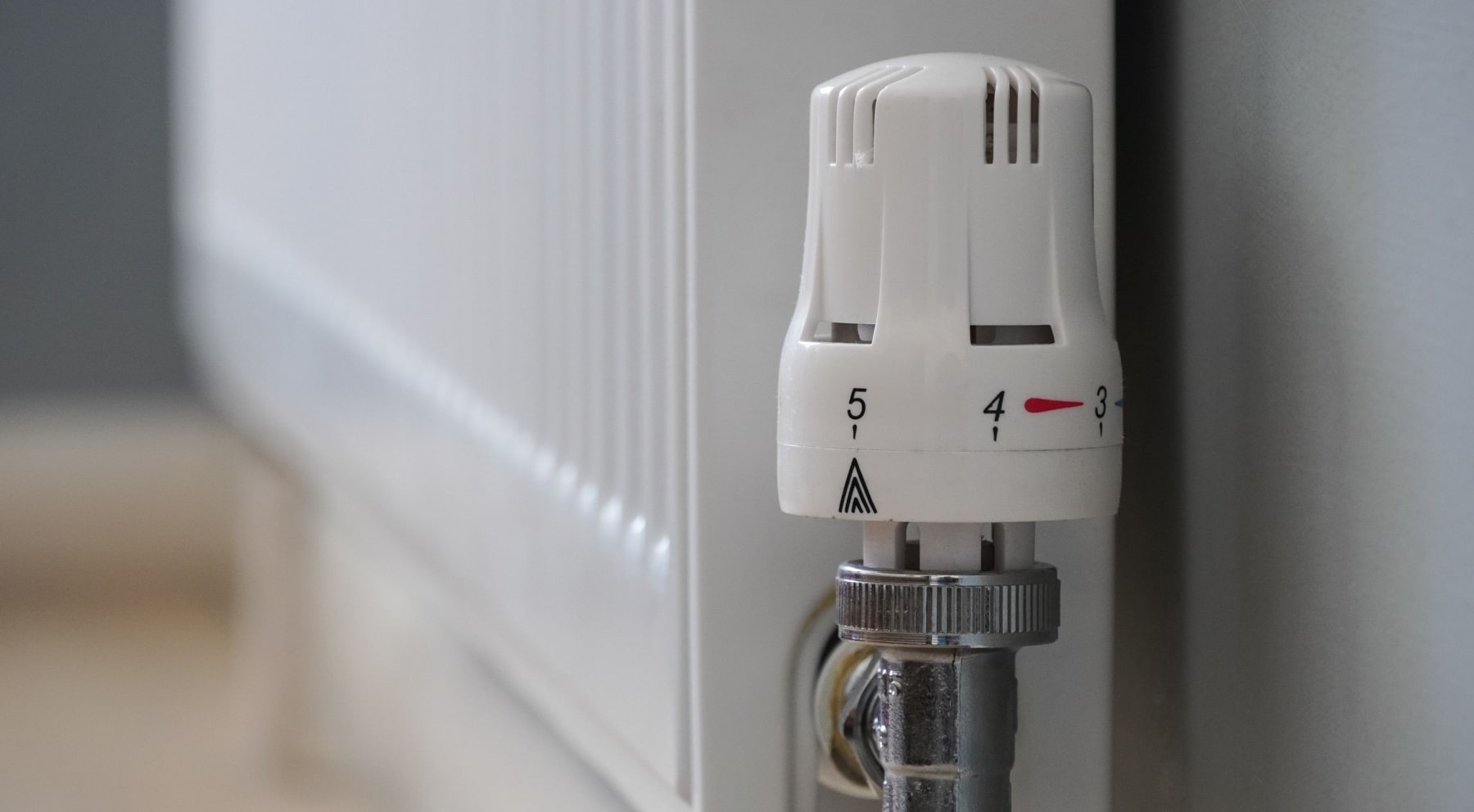Overview Of Common Fridge Freezer Issues
A fridge freezer is very much the kind of thing that many of us take for granted in our homes… right until the moment something goes obviously wrong with it. All of a sudden, you might no longer have that easy means of keeping your food fresh. But what can you do to tackle the problem?
Various common fridge freezer problems can occur from time to time, such as the freezer failing to freeze properly, the fridge being overly warm, or water accumulating in the fridge’s base.
As trusted providers of West London repairs and maintenance services, we have encountered – and fixed – a broad range of common fridge problems down the years. Below, then, we have set out some of the most frequently seen issues that could happen to your fridge freezer, and how to combat them.
Importance Of Regular Maintenance
Many of the most common fridge problems can, of course, occur even if you are very proactive and diligent in looking after this appliance in your property.
However, as experts in residential and commercial property maintenance and repairs, we would recommend the following maintenance actions to help minimise the likelihood of future issues with your fridge:
- Cleaning the fridge freezer regularly, including removing stains, marks, and food debris from both the inside and outside. This will help reduce the chances of mould and unpleasant odours developing.
- Routinely defrosting the fridge freezer, to ensure ice does not get out of control and your appliance remains efficient.
- Keeping a close eye on the temperature of the appliance. Your fridge should remain at a temperature below 5°C, so that food does not go bad too quickly and there isn’t too much chance for harmful bacteria to grow.
Safety Precautions
Electrical Safety
There are various electrical safety precautions that you can take to help lower the probability of both lesser-spotted and common problems with fridge freezers. Some of these include:
- Ensuring the fridge freezer is in a safe location. There should be no flammable materials, cookers, or radiators located near your fridge. Enough space should also be left behind your fridge freezer for the circulation of air.
- Defrosting the fridge freezer at least once a year. This will help ensure the appliance continues to work properly. However, it is crucial to avoid using a heater to defrost the inside of the fridge freezer.
- Only ever plugging the fridge freezer directly into the wall, instead of using an extension lead.
- Keeping a lookout for any signs of wear, damage, or malfunction. If you do see any such worrying indicators, arrange to have the appliance inspected by experts in electrical faults and repairs, such as our in-house contractors at Essential Repairs.
Handling Refrigerants
It is of the utmost importance to be careful with your handling of refrigerant. In today’s fridge freezers, refrigerant is used only in very small quantities, to extract heat from the device. It is, though, highly flammable, so you will need to be careful when transporting your fridge freezer, and you shouldn’t plug in the appliance if there is any discernible damage.
Although the once-popular refrigerant, chlorofluorocarbons (CFCs), is now banned, some of today’s fridges still contain fluorinated greenhouse gas, otherwise known as F-gas.
If you are intending to get rid of an old fridge, you will need to check whether F-gas is contained inside. If this is indeed the case, it will be necessary for your local council to collect the appliance and recover the F-gas.
Diagnostic Checklist
Initial Inspection
You should be keeping a close eye on your fridge freezer in general – as well as an ear, for that matter, as any changes in the noises emerging from the appliance could be telling.
Such outward signs as the fridge being too warm, the light in the fridge not working, the door seals being torn, or the fridge freezer ceasing to work after defrosting, will merit further investigation.
Identifying The Problem
Paying close attention to the specific “symptoms” shown by your fridge freezer, will allow you to begin narrowing down the possibilities for what the underlying problem could be.
Unusual noises coming from your appliance, for example, could be an indicator of a problem with the compressor, condenser fan, or condenser coil. You might also have reason to suspect the compressor is damaged if your fridge freezer is completely silent.
Tools And Equipment Required
You can use an external thermometer to check your fridge and freezer’s temperature. You should expect the fridge to be set at approximately 3°C to 5°C, while a properly functioning freezer is normally around -18°C.
Common Issues and Solutions
4.1 Fridge Not Cooling Properly
A fridge failing to cool properly can be caused by a variety of factors. If, for example, dirt, grease, and dust are allowed to accumulate on the coils, this could prevent them from cooling the refrigerant properly. In that case, you’ll need to unplug the appliance and clean the coils. A faulty evaporator fan could also be to blame, given that its purpose is to circulate cool air.
4.2 Freezer Over-Freezing
Again, there can be a range of possible causes of over-freezing freezers. These can include the door seal being faulty, damaged, or deformed, or the defrost system having failed. Signs of the latter having potentially happened include frost on the freezer’s back wall, or a clicking sound being audible when the circulation fan turns on. So, it may be necessary to arrange for the defrost heater, defrost control board, and thermostat to be replaced.
4.3 Fridge/Freezer Not Defrosting
This is another one of the most common fridge freezer problems, which can occur due to a faulty defrost timer, heater, or thermostat. An iced-up evaporator can also bring about this problem, given that the effect on airflow could prevent the temperature from falling low enough for the appliance to defrost.
4.4 Unusual Noises
The exact nature of the unexpected sound coming from your fridge or freezer, could provide a clue as to the source of the problem. A loud buzzing or knocking sound, for example, could be caused by a worn-out or damaged compressor. It could cost you more than £170 to purchase a new compressor, and you’ll need to account for the further cost of arranging an engineer to fit it.
4.5 Water Leaks
If your fridge freezer is leaking, it’s most likely to be blocked drain tubes that are causing the problem. If so, you can begin to tackle it by removing any food from the appliance and turning it off. The drain cover is typically at the bottom or near the front of the appliance. So, removing drawers should enable you to reach the blockage. If the drain has frozen over, you should be able to defrost it by pouring hot – but not boiling – water on it. Hopefully, it won’t be long before you’ve cleared the tubes out.
4.6 Ice Maker Not Working
The most frequent reasons for a refrigerator failing to make ice include the water fill tubes being blocked, the water inlet valve being blocked or frozen, or the water filter being dirty or clogged. So, to begin diagnosing and fixing the problem, you’ll need to take steps including checking the water fill tubes, inspecting the water inlet valve, and cleaning the water filter.
Preventative Maintenance Tips
Cleaning And Care
The thorough and regular cleaning of your appliance can help reduce the likelihood of common fridge and freezer problems.
To clean your fridge, first remove all the food, shelves, drawers, and bins from the device, and throw away any spoiled or out-of-date food. Make sure you’ve also unplugged it prior to cleaning, especially if you will be cleaning the coils.
For the cleaning of the inside of the fridge, you’ll simply need to wipe it down using a soft cloth and a food-safe cleaner. Don’t forget to also use a soft cloth to wipe down the door seals, followed by drying with a clean cloth.
Regular Inspections
You can check over your fridge freezer yourself from time to time, to help stay alert to any potential issues. One thing to keep checking is the temperature – to reiterate our statement earlier, in the case of the fridge it should ideally be around 5°C, while the freezer’s temperature ought to be approximately -18°C.
Be sure to check the doors, too – they should close evenly and tightly. Listening to your fridge can also help draw your attention towards any emerging problems.
Older fridges do usually make a louder, almost buzzing sound compared to the near-silence of most modern fridges. However, you will probably already instinctively know the normal sound of your fridge. So, it should be obvious if any particularly strong and unusual noises begin to emanate from the device.
Prolonging The Life of Your Appliance
The correct stocking of your fridge freezer can have an impact on how long it lasts. The freezer will typically work better with more food kept in it, as this will allow it to retain the colder air more easily. In the case of the fridge, though, overstocking might be a problem, as this could hamper the circulation of cold air inside this section of the appliance.
Such other measures as cleaning your fridge freezer often, and defrosting it at least once a year – perhaps even every four to six months – will further help bolster the appliance’s longevity.
When To Call a Professional
Indicators Of Serious Issues
There are various potential signs of fridge freezer problems that might necessitate you calling a professional. If, for instance, your fridge isn’t sufficiently cold, this might be an indicator of a broken motor fan, so you’ll need to have an expert look at it.
If your food is going off in your fridge freezer before you would ordinarily expect it to expire, this may be a sign of the device failing to keep its temperature down. So, again, you are advised to seek out people who have expertise in tackling common problems with fridge freezers.
Finding A Qualified Technician
If the problem you have with your fridge freezer doesn’t seem to be one you can fix independently, don’t be afraid to reach out to our certified electricians at Essential Repairs. We will be able to carry out quick diagnosis and repairs if required – so, feel free to book with us online today.
Conclusion
Summary Of Key Points
As we covered in this article, there are various common fridge freezer problems, ranging from cooling difficulties and over-freezing woes, right through to water leaks and the ice maker failing to produce ice. There are, though, steps that you can take to begin diagnosing and fixing the issue with your appliance, even if a technician’s assistance may eventually be needed.
Final Tips and Recommendations
If remedies such as those outlined above are still leaving you puzzled as to how you can fix the problem you have with your fridge freezer, it is best to avoid any unnecessary risks. Reach out to a company that has expertise in tackling common problems with fridge freezers, such as Essential Repairs, to ensure your appliance is safely and efficiently repaired.






